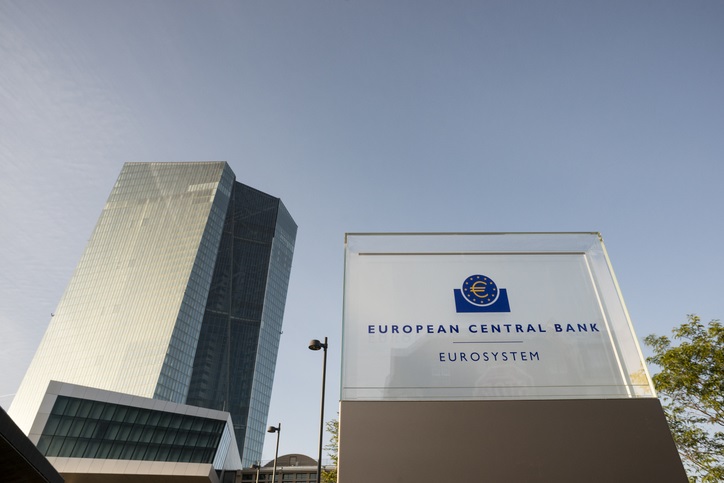ECB promises emergency cash to save eurozone economy
Another massive programme of asset buying and market behaviour is explained by our head of markets.
4th June 2020 15:08
by Richard Hunter from interactive investor
Another massive programme of asset buying and market behaviour is explained by our head of markets.

It is often better to travel than to arrive, but the increase of €600 billion to the ECB’s Pandemic Emergency Purchase Programme (PEPP) has provided a pleasant shock to the €500 billion which the market had been expecting.
Alongside the additional fiscal boost of €130 billion announced by Germany yesterday, whose fiscal response to the pandemic has marked something of a volte-face, it seems that the Europeans have shaken off their traditionally cautious stance on spending and have joined the growing throng of other major powers. The PEPP now stands at an eye-popping €1,350 billion.
“The purchases will continue to be conducted in a flexible manner over time, across asset classes and among jurisdictions,” said ECB policymakers. “The horizon for net purchases under the PEPP will be extended to at least the end of June 2021. In any case, the Governing Council will conduct net asset purchases under the PEPP until it judges that the coronavirus crisis phase is over.”
It represents the continuation of a theme in other developed economies where a combined, or even coordinated approach to monetary and fiscal stimulus by central banks and governments has been implemented in an effort to lessen the severe economic impact arising from the crisis.
As such, sentiment has of late been skewed towards the positive as investors have chosen to look past the current and prevalent recessions to a return to some kind of normality, not least of which for company earnings. In the case of the US, despite the current civil turbulence and unrest, as well as a ballooning unemployment rate, there are hopes that there is a strong element of pent-up demand from the consumer who represents such an important contributor to economic growth.

Source: TradingView. Past performance is not a guide to future performance.
Technology shares in general have shown strength again in these times, perhaps even luring a new generation of older users who would not otherwise have been prepared to become regular users of tech, as working and contact habits have dramatically changed.
Indeed, the flagship Nasdaq index in the US finished the first quarter of this year down 14% in 2020, but is now up by 8%. The influence of these tech stocks has also underpinned a recovery of the S&P500, where a deficit of 20% at the end of the first quarter has been reduced to just 3%. An estimated 20% of the S&P500 by value comes from just five stocks in the form of Apple (NASDAQ:AAPL), Microsoft (NASDAQ:MSFT), Amazon (NASDAQ:AMZN), Facebook (NASDAQ:FB) and Alphabet (NASDAQ:GOOGL).
However, the situation remains finely balanced. It remains to be seen whether we are experiencing a bear market rally or whether the seeds of the next bull market are being sown.
There are concerns around the breadth of the rallies which have been seen, excluding the tech stocks and, in any event, whether the market has perhaps come too far, too fast. Escalating tensions are coming to the fore in the US both internally and externally, where the war of words with China has recently reared its head anew.
The recovery which is being anticipated globally has yet to be proven. Sentiment could be derailed by any new outbreaks of virus infections and containments, a slower than expected recovery or effects which turn out to be structural and far-reaching, such as the propensity of tourists to travel abroad.
July will likely test the patience of even the most bullish investor, as a torrent of reduced earnings and profits confirm the economic damage which is currently being done. In addition, the absence of a vaccine for Covid-19, let alone a timescale for rolling it out when available, could prolong the current recession where hopes of a “V” shaped economic recovery have all but evaporated.
This remains a difficult investment backdrop, where the benefits of the recovery can be seen, but cannot yet be quantified or a timescale applied to them.
Generally positive news such as today’s ECB announcement will need to keep coming, perhaps in the form of further fiscal stimulus from the major economies, in order to lessen the impact of the pandemic on both sentiment and corporate earnings.
Markets have indeed recovered strongly from the March lows, and some have been stoic in keeping to the longer-term view which investment demands.
In the meantime, what is likely to be a woeful second quarter reporting season will hopefully not lead to a summer of discontent.
Full performance can be found on the company or index summary page on the interactive investor website. Simply click on the company's or index name highlighted in the article.
These articles are provided for information purposes only. Occasionally, an opinion about whether to buy or sell a specific investment may be provided by third parties. The content is not intended to be a personal recommendation to buy or sell any financial instrument or product, or to adopt any investment strategy as it is not provided based on an assessment of your investing knowledge and experience, your financial situation or your investment objectives. The value of your investments, and the income derived from them, may go down as well as up. You may not get back all the money that you invest. The investments referred to in this article may not be suitable for all investors, and if in doubt, an investor should seek advice from a qualified investment adviser.
Full performance can be found on the company or index summary page on the interactive investor website. Simply click on the company's or index name highlighted in the article.